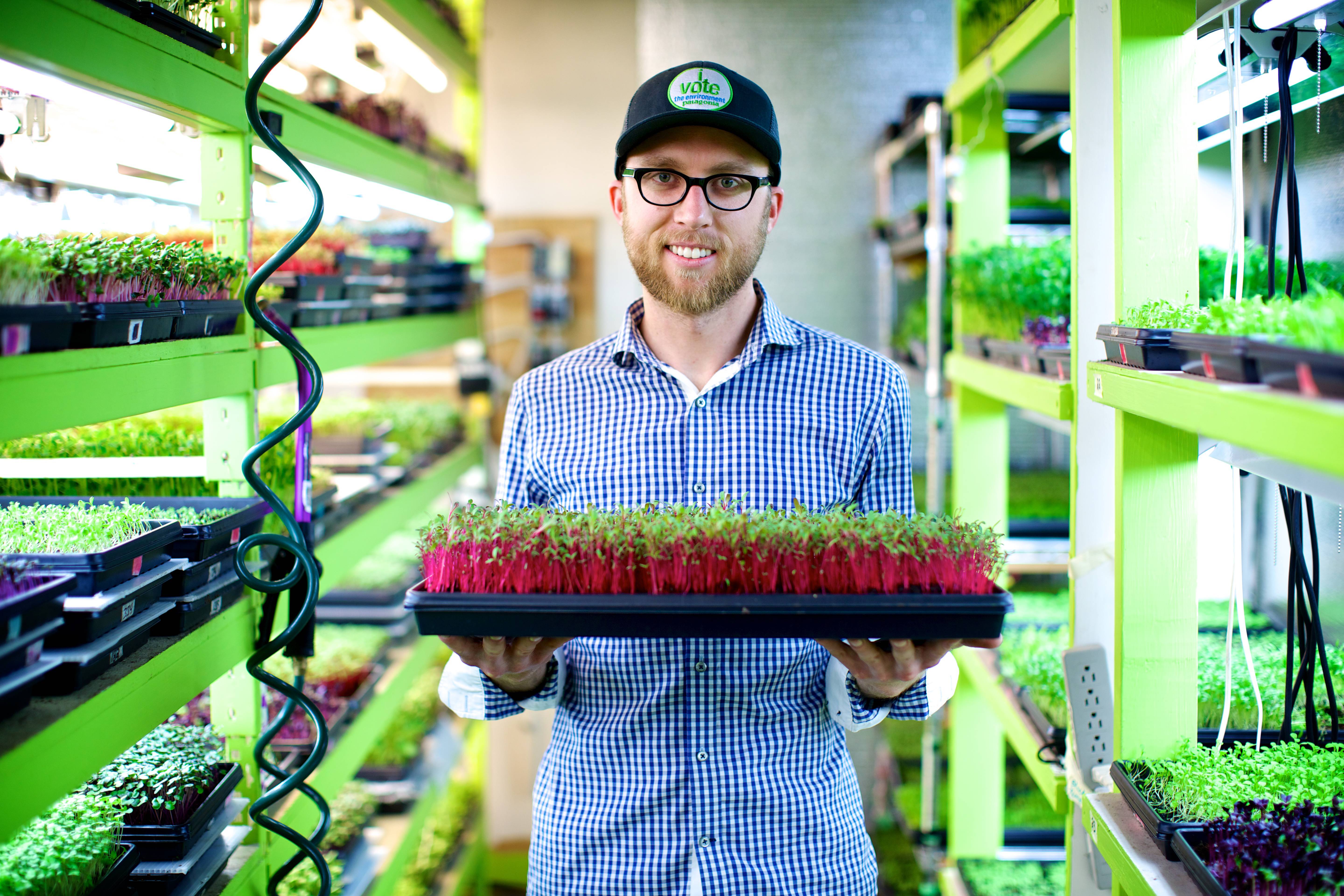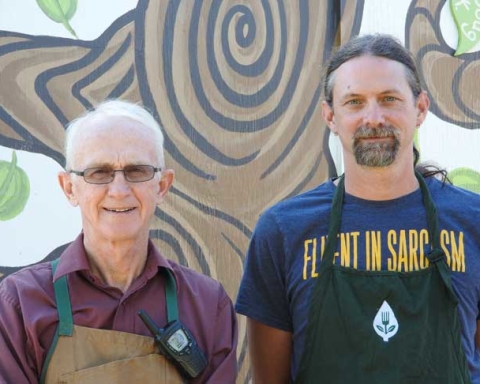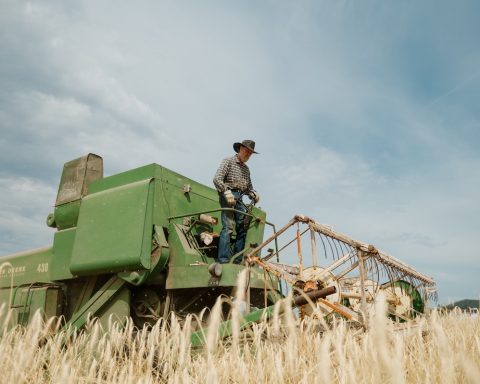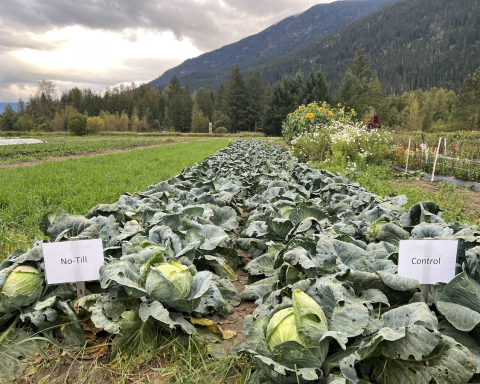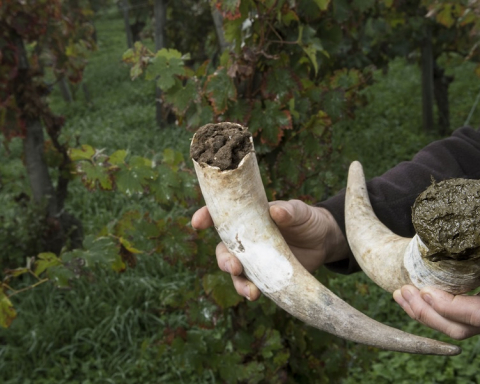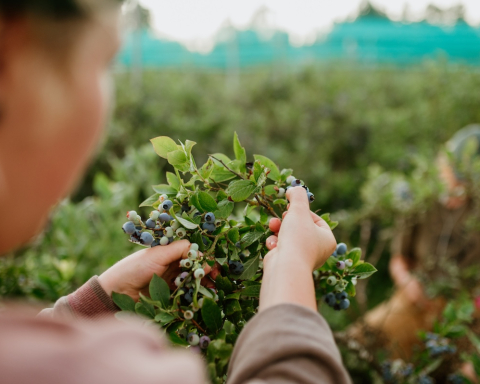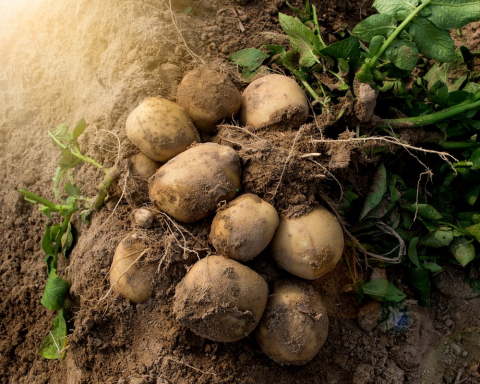Carolyn Mann
Canada’s First Certified Organic Urban Farm
Our farm is measured in feet, not fields, and our next door neighbour is a bottle return depot. Our crop rotations are counted in days rather than months, and we rely on a fleet of bicycles to get around the city.
Our farm is small, but our dream was big: to become Canada’s first truly urban Certified Organic farm.
Sky Harvest is located in the heart of East Vancouver, where we grow microgreens, the tiny, nutrient- packed greens often used as garnish in fine dining. Sky Harvest was founded by Aaron Quesnel in 2012 and is based on a vision of a more sustainable cityscape in which food is grown closer to where it’s eaten, and where chefs can meet their farmer face to face.
In order to accomplish this, Sky Harvest employs unconventional farming techniques: we grow in the lower level of a warehouse, and all of our greens are delivered by bicycle throughout Vancouver. We are located just 3km from downtown, and our greens don’t travel farther than 10km to meet our customers.
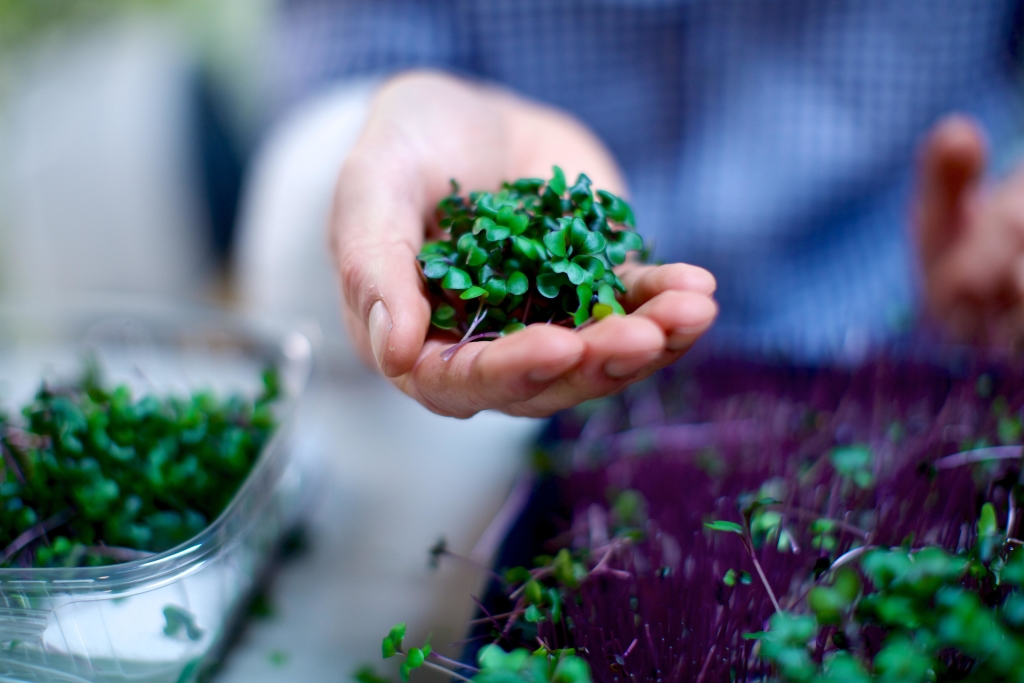
Introducing Microgreens
Typical microgreen varieties include arugula, kale, peas, radish, sunflower, basil, cilantro and cabbage. At Sky Harvest, we grow about 15 varieties, including a few unconventional types – here you’ll find nasturtium leaves, lime basil, and micro sorrel.
Microgreens are noted for packing in 6-40 times the nutrients per weight as their full-grown counterparts, depending on the variety. Recent studies have noted the importance of the nutrients found in microgreens for fighting cancer, maintaining healthy skin and eyes, and promoting liver and bone development.
Microgreens are very different from their full grown counterparts, often boasting unique flavour profiles and a more delicate texture. Their flexibility is incredible: appetizers, entrees, drinks, and even desserts are all places that microgreens find themselves at home. When it comes to microgreens, though, Sky Harvest specializes more in the growing than in the recipe creation.
Because of their delicacy, microgreen growth requirements are extremely particular. Each crop has unique nutrient, water and light requirements, and getting the balance wrong can mean crop failure. This adds a layer of complexity to our daily tasks and makes automation of the process unfeasible.
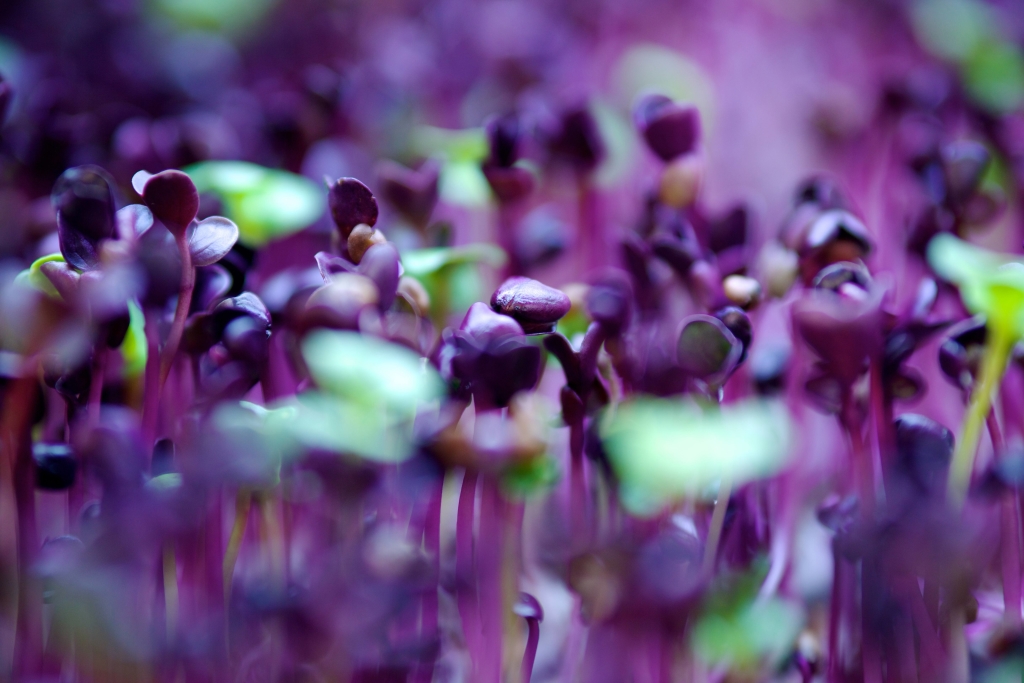
A Day on the (Micro) Farm
Every day of the year, someone from the Sky Harvest team heads down to the farm, where they’re greeted by a warm, almost tropically moist atmosphere and a somewhat magical scene: shelves and shelves of tiny plants, stretching eagerly toward the light.
The day’s tasks are laid out on a whiteboard, but that doesn’t mean it’s a simple job. Each individual tray must be checked and watered by hand. Trays planted in the past few days are all examined to see if they’ve germinated yet, and then are uncovered and slotted under their own lights.
In this way, every tray is looked after by hand, so that we can be sure everything is going well. We’ve always strived to grow with care, and we have always grown organically – but getting certified was a recent step, and, given the resources involved in the process, a decision not taken lightly.
Microgreens have been exploding in popularity over the past few years, becoming staples for many different kinds of restaurants, food trucks, and the home cook. To match the growing demand, Sky Harvest greens are now found in various grocery stores around Vancouver, including Choices Markets, Spud.ca, and Pomme Natural Market.

The Importance of Certification
While many of our chefs have visited our farm for a tour of the operations, we no longer have the opportunity to meet all of our customers face to face. Getting certified became an important way to communicate our values and practices to our expanding customer base.
The process of organic certification seemed very daunting from the outside. It was always a dream – but one whose paperwork, financial requirement, and time commitment were hard to work into an already busy day. It wasn’t until recently that we realized the benefits were beginning to out-weigh the costs and it would help illustrate our ongoing commitment to sustainability and innovation in urban farming.
There are certain aspects about our farm that made it easier to go through the certification process than it might be for others. Our farm is small and quite concentrated in only 2,000 square feet. We grow in containers, indoors, which makes it easier to control our inputs and our soil quality.
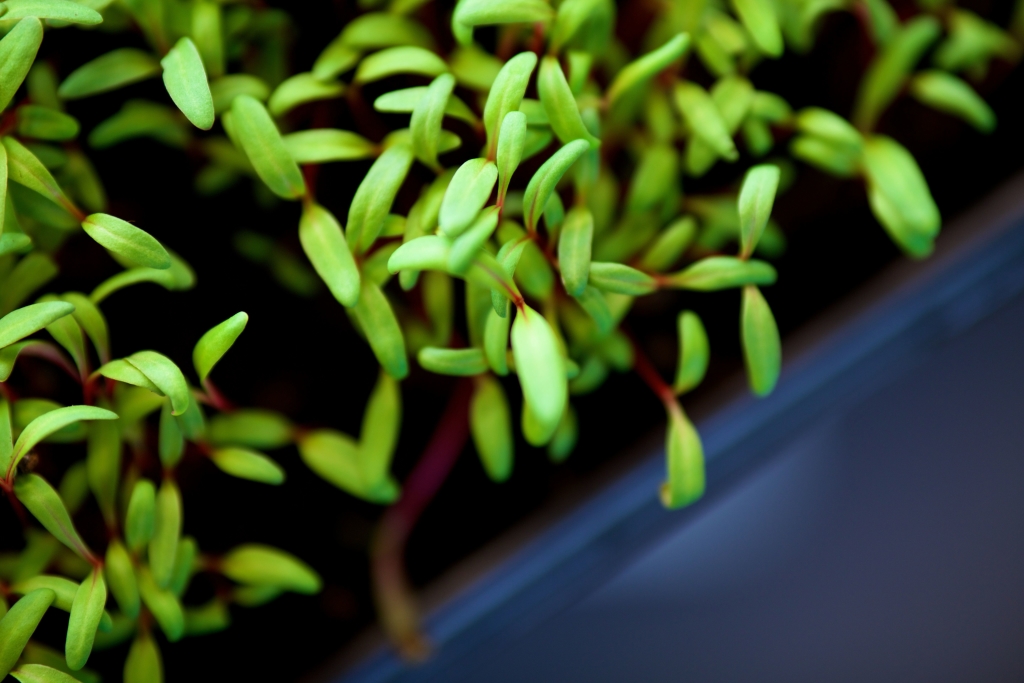
However, as microgreen growers, we also face some unique challenges. Because our greens are harvested so young – some are only six days old – we face different regulations. All of our seeds must come from certified organic sources, even if organic seed is not available on the market, making suppliers’ seed shortages not just a headache, but a potential nightmare.
Overall, even though the process was complicated, it was an exciting step, especially when we officially became Canada’s first truly urban Certified Organic farm. There are still challenges, and being only a few months into our official certification, many more challenges are likely to pop up.
For now, we’re proud to have taken this step and to have become leaders in our field. We will continue to push this boundary with innovation and sustainability as our goals, all while providing the best quality product. We love eating local, healthy and organic food – and we hope that by becoming certified, we’re helping to drive this growing industry.
Carolyn Mann is Sky Harvest’s Marketing and Development Guru. She is currently working on her Master’s in Agriculture, studying soil health in organic agriculture.


